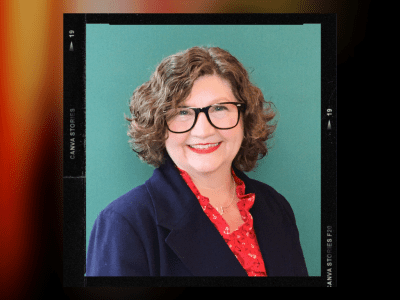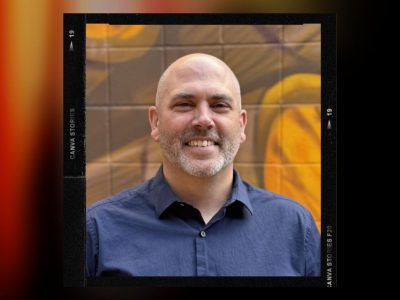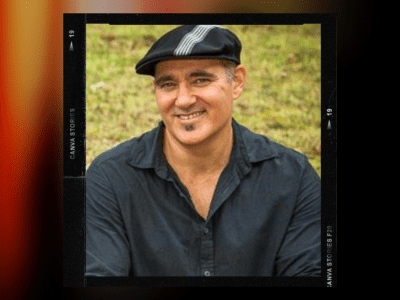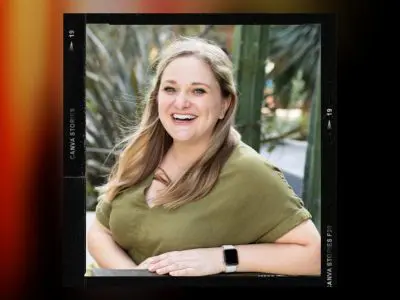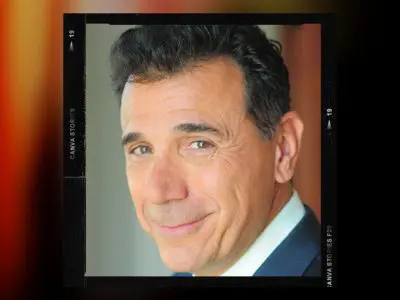Reconnecting Disconnected Employees and Teams
w/ Dr. Jody Carrington
Use the buttons above to listen now.
Transcript - Reconnecting Disconnected Employees and Teams
Rich: On this episode of Team Building Saves the World,
Jody: the hardest thing to do is to stay emotionally regulated when somebody else is losing their frigging minds.
Rich: Right, right, right, right.
Jody: One of the DA most dangerous phrases in the English language is this, it’s always been done this way.
Rich: Right? Like we’ve been clenched fist for three years.
Jody: Yes. Yeah. Can everybody just take a look at each other right now? I just want you to make eye contact with somebody in the room. It’s brutal. They’re jerks, and so are you.
Rich: Hello. Hello team. It’s me, your old friend, rich Rininsland host of team building saves the world, the show where I speak to thought leaders from around the world discussing variable strategies and tools to help you and your team build a better work environment. And today we’ll talk about getting it together as we discuss disconnection with renowned psychologists, speaker, author, and ceo, and Chief Happiness officer of Dr.
Jody Carrington, consulting the queen herself, Dr. Jody Carrington. But first I need to share some. Hello, with my supporters at Team Bonding. If your team is ready to experience teamwork to the power of play, to visit team bonding.com to learn more now, team, join me in welcoming my guest, the author of such noted books as kids these days, a plan for reconnecting with those we teach lead and love teachers these days, stories and strategies for reconnecting and feeling seen and reconnecting in a disconnected world.
Sorry, and feeling seen, reconnecting in a disconnected world. There it is, Dr. Jody Carrington. Hi, Jody.
Jody: Oh, I love it when the crowd goes wild like that.
Rich: Oh yes. And I pay them well to do so for you.
Jody: Thank you so much. Thank you. That just Thank you. That’s exactly what I needed today.
Rich: Thank you so much for coming and joining us. Uh, real quick, I mean, we have a lot to talk about. So let’s start where I always like to start.
Tell my team out there a little bit about yourself, how you got into this field and what it is about this field that, that led you into the business side of it.
Jody: Okay. I love it. So I grew up in a little town, um, in Alberta, Canada, and I didn’t know then that everything I needed to learn happened there. Mm.
And for me, it all comes back to relationship. I can tell you the first and last name of every teacher I had, my hockey coach. Um, I remember so many things about what I felt how I felt, not about necessarily what I learned. And so I often talk about this on stages now where I don’t remember anything about literacy and numeracy or specifics of anything I went on.
Get a PHD
and so I remember thinking even as a very privileged kid in this little town, um, I know what I wanna do for the rest of my life. I wanna make people feel the way that a couple of my teachers were able to make me feel in grade school. Okay? And so my dad was very excited about this. He was like, you’re gonna go, you wanna be a teacher?
And I was like, no, I’m not a fan of children. Um, I’m still not a my own, so I’m around, but. I, what I know to be true rich is that if the big people aren’t okay, if leadership isn’t okay, the people they’re trying to get to places won’t be either. Mm. And when I left there, I, I worked for our national police force.
I was a civilian member of the Royal Canadian and a Police for a couple of years. Mm. Learning. Well, it looks like when organizations don’t look after their people, And what happens when it’s hard work? Human services work, trauma work that happens, right? If you don’t look after your people, they can’t continue to serve.
And so I spent, when I got my PhD, I, I did 10 years on a lot psychiatric inpatient unit for kids. Cause I became a child psychologist and, uh, I started to learn about trauma and neurological processes and we then got children of our own really too quick. Three under two. It was a test of my own
resilience. But anyway, it’s fine. I love them now. And, um, So we moved to this little town to raise our babies where my husband grew up, and I started speaking, um, to teachers, to hockey coaches, to farmers, anybody who would listen about relationship and connection. Hmm. And that turned into three bestselling books.
And now I speak around the world and I have a little private practice. And, uh, the message is the same all the time. We were never meant to do this alone, and we’ve never been more disconnected.
Rich: Excellent. Let’s, let’s dig into it. Why are we so disconnected now? I mean, obviously there was the pandemic. That was a huge hit to everyone, including businesses, but individuals as well.
All right.
Jody: So there, there was a mental health crisis that was starting. I was so concerned about this as a psychologist prior to the pandemic. And the pandemic just exponentially created that process like you’ve never known.
Rich: Right. I was doing some studying. It said in as early as 2018 people were talking about feeling disconnected
Jody: and Well, and I tell you why you think about this is the first generation.
That we have been this disconnected. So I will tell you, despite the fact that we’re neurobiologically wired for connection, if you disconnect from an infant, they die. Mm-hmm. The hardest thing you will do is look into the eyes of the people you love. So I don’t know who created that secondary rule there, but we are neurobiologically wired for connection.
But the hardest thing you’ll do is look into the eyes of the people you love. And we’ve never had this much proximity between us. Like think about the square footage of the house that your grandfather lived in. . And the square footage of the house in which many of us raise our babies. What’s the difference?
Rich: Gotcha. Gotcha, gotcha.
Jody: You know? Yeah. And so retrospective data, this is what gets me every time. Retrospective data would suggest that our great grandparents looked at their children 72% more of the time than we look at our babies. And you will never automate relationships. When I talk to organizations globally now, I talk so much about the fact that technological advances, the, the pandemic taught us that we can stay connected around this globe.
But you will never automate relationship gets your people back in the office. Connect with your people as much as you can. There’s not a doubt in my mind that yes, we need to be flexible and we enjoy, you know, some of the freedoms that come with that.
Rich: Are we seeing that, that a lot of this is because, I mean, even when we are together, people are still doing this. They have their phones in front of their faces, they’re blocking their view of one another from the screens. Is all of this adding to it? So is it the technology that’s even separating us within the same rooms?
Jody: Listen, you, um, highness, empathy, compassion is a skill. Mm-hmm. And if you’ve never received it, you can’t give it away. And if we are increasingly in this place where we are disconnected, we are losing access to the ability to develop those skills. And so small talk, being able to strike up a conversation, give a compliment, feels weird or awkward.
And the less we get skilled at that, the less our babies are watching us do that. There’s no script for that. Gotcha. So you can’t tell a kid how to be kind or anti-racist or inclusive. You gotta show him. I can’t tell my team how to do the things that I want them to do as effectively as if I show them.
Right? I mean, that’s, that’s the premise of culture, right? And when we think about our lack of connection to people and you know, even this ability to, to do Zoom or to do this, I mean, I’m so grateful for this opportunity. If we were in the same room, neuro Neurophysiologically would be different. Okay, but what’s so critical is that even our cameras are on, right?
That that’s critical.
Rich: Yeah. I cannot tell you how many times I have done, especially during the pandemic itself, as we started getting into what everyone was proclaiming as Zoom fatigue, you know, you would get to more and more events where less and less people were turning their cameras on, and I’m begging them, especially during my time with them.
I’m facilitating. We’re here to have a good time. Turn your cameras on. We need to see smiling faces.
Jody: I need to see some feedback too, cuz I need to know if I’ve pissed you off or I cross the line or, you know what? I can’t do this alone. You know? And I think that, that, that communication is the thing we’ll never automate.
And so we can expedite policy and procedure all we want, but if your team don’t feel seen, they will not rise. One of my favorite hockey coaches said this, you should see how fast I can get a kid to skate when I know the name of their dog.
Rich: Huh. That’s great. That’s excellent, isn’t it? Yeah. It’s phenomenal.
But let’s talk about the workplace now. In, in what way are we seeing disconnection affecting the workplace?
Jody: Um, Okay. So I will tell you the fundamental best thing any of us will do well is to be able to stay calm in times of distress. Mm-hmm. Ok. It’s called emotional regulation, right? It is actually the thing that we have always liked historically in people.
We like people who are emotionally regulated. We don’t like when people are losing their friend of minds. If any of your team is, you know, still married, uh, think about the last time. You know, you like it best when people are calm. Yeah. If you have, uh, your own personal children, you like them best when they’re calm, we’ve always put a emphasis on.
Sure, but the only way you learn emotional regulation is face-to-face connection with each other, and we’ve never been more disconnected. Okay. So part of the issue is if I’m gonna tell somebody that they matter, that they’re important face-to-face connection matters a lot in this process. Mm-hmm. Now, If you think about the most dysregulated people, here’s the three ingredients to the most dysregulated people I’ve ever seen.
So if I was, you know, at the scene of an arrest or, uh, a death notification or apprehending a kid, uncertainty, fear, no end in sight. Those are the three things that make us the most dysregulated. So you think about your businesses in financial ruin, uncertainty, fear, no end in sight. You just, three of your top employees just quit.
That’s what gets us most regulated if you’re in an abusive relationship. Uncertainty, fear, no end sight. Those are the three things that make us, huh? Mm-hmm. Think about the components of a global pandemic.
Rich: Yeah. Yeah. Okay.
Jody: Yeah. Yeah. So for the past almost three years, many of our organizations have been in a state of heightened arousal, which means your shoulders are up.
Your anticipatory anxiety has never been this high. Okay? Mm. And it leads to this concept that Freberg came up with a 1974 called burnout. Right, and it’s the thing people want me to talk about the most these days, and it has nothing to do with the pandemic. Boden Berger’s, a German psychologist, dead guy who came up with this in 1974, okay?
He’s older than me, and he said, here’s the three things. Here’s the definition of burnout. When the resources outside of work intended to fill your soul are not greater than the ones that get sucked from your soul at work, you’ll burn out.
Rich: Okay?
Jody: And so basically if you don’t put gas in your car, it stops going If, if you as an entrepreneur, if your expenses don’t every once in a while become less than your income, your business sales, same thing, right?
And for a long time, from an organizational perspective, we haven’t understood this. If you don’t look after your people, they will not be able to serve. And these are three things. You know this, this still sort of hold up today across industries and organizations. Here’s the three things you’ll burn out.
Emotional exhaustion. A lack of compassion and an experience of futility, which basically means your che is broken or you know, you give a rip is broken, so. Um, and so the first thing, emotional exhaustion makes sense to me because if you think all of us have been in this state of uncertainty through no end insight.
Rich: Yeah. Yeah.
Jody: Teaching from home, wondering about the success, where our business is, are we physically safe? I don’t want you to see me. I haven’t combed my hair because I tried to get my kid up, you know? Right. Uncertainty here. No. End sight. So you think about when you hold your shoulders like that. Yeah. For a very long time.
You’re so tired. Pandemic. Like we’ve all pandemic,
Rich: like we’ve been a clenched fist for three years. Yes.
Jody: Yeah. And so now that the pandemic is over, people are like, I don’t understand what’s, tell me you, you’ve been running a mental, which affects your sleep. If I was gonna do a mental health assessment on anybody, my first question is how are you sleeping?
And when you’ve been like this, what happens is many of us sleep gets disturbed or our sleep gets disturbed. Right? And if you think about a toddler missing a nap, When they have got their naps, oh my gosh, they’re lovely. When they miss a couple, they’re jerks and so are you. And so then what happens is it leads to the second thing that Fredenberg had talked about.
We start to not like each other. So our ability to stay connected to humanity is compromised. When you’re tired, you wanna punch people. And so if we now think about a workforce that is tireder than they’ve been, and they’re serving humans who’ve never been this chippy, huh, it becomes very difficult to feel like you’re successful.
Which leads to the third thing called FU futility, which is really like, like misery doesn’t love company misery, loves miserable company. And when we’re in this place of like, what’s the point? Right. There’s no resources. There’s nobody to, so positions. You know what I’m, you’re me too. What are gonna give us a water bottle?
So tricky to stay connected because somebody then optimism. It’ll kill optimism because if somebody comes into the staff room, for example, and says like, okay, there, it’s a new kid, baby, or a student, whatever, and they’re like, you know what? You, what? I was just thinking buys, um, do you guys want so funny?
Right? Do you guys wanna do a potluck on Friday? So like that, no, people are like, shut up, Jeff. Because it’s like there’s no ability to find that optimism and that innovation. Because we’re exhausted and we’re feeling kinda disconnected from each other. So I think all of those things have sort of set us to in this perfect storm right now.
Disconnection from each other, heightened arousal, worried about the physical safety of the people we love the most, right? Some of us, you know, operating from home, teaching from home, navigating those things, despite the fact that we’re back into it now, we’re exhausted and you can’t address what you don’t acknowledge.
We really just want people to be okay, right? We’ve always wanted people to be regulated, so we do a lot of this. You’re good. We’re good. It’s good. We’re good. We’re good. Oh my God, I love my marriage. Oh, I love, it’s so good. We’re good. Oh, this job is so good. Right, right, right. Cause we don’t wanna be the dysregulated ones, but we’re
Rich: Right.
And well, let’s say that I’m a mid-level manager in a corporation. Um, what signs can I look for? For my employees that they’re feeling disconnected that this, I mean, short of throat punching each other, let’s find an earlier stage that I can help them to find.
Jody: So, I mean, if we always take a step back from me, it’s like we often care the most for other people.
And if I were to think about, you know, three criteria, three FO focuses moving forward, it would be in this order, you, the people on your team, and then the people you serve. In that order. Okay, so if I wake up in the morning and my before, and many of us do this, like including me, rich, I mean I’m, before we even put our feet on the floor, we’re scrolling other people’s lives.
We’re in a state of comparison. Sure. We think even before we take our first breath, oh my gosh, what’s for supper? Holy, I gotta get this report in. Oh my Jesus. Why didn’t I have conversation? And our shoulders are up before we even get our feet on the ground. Right? Right. And then the people we love the most are asking us for things before we even leave.
Right. Like, mom, is my watch ready? Uh, did you put gas in the car? And you’re already like zipper. And so part of the issue is I want you to think about where your shoulders are. Okay. How much have we lost access to sort of why you’re doing this? Because, I mean, whatever we do in our organizations, it is just a job.
Right. We are remarkably replaceable, and so when we lose sight of those things, what happens is we tend to lead from a place, try to build culture from a place where we’re on edge. That’s never an effective starting point, so you matter most to me than anybody. Then it’s the people you serve with, right?
Mm-hmm. How do they feel Seen, right. What are we doing in the renovated check-in? Because we wanna fix problems, particularly as leaders, and we forget the most critical piece, which is this thing called acknowledgement.
Rich: Okay?
Jody: Can I hold space in the middle to just notice how you doing today, rich? I’m so glad you’re here.
Right? How did it go last night at that game, right? How is the dog? Oh my God. I mean, it’s driving you nuts. Are you sleeping? Like what’s happening? Those acknowledgement pieces change the world. And it doesn’t mean that I’m not gonna have to give you critical feedback or that we’re not gonna have to have a hard conversation or that, you know, I’m so interested in, in how exhausted you’re with a certain client.
But that middle place of acknowledgement that we’re humans too, is so necessary these days because we’ve never been as disconnected. We’re not getting it anywhere else. Okay. And so we have to spend more waking hours with the people we work with than with the people we.
Rich: Okay. Wow. Um, I wanna dig so much more into this cuz it seems like there’s so much to dig into, but unfortunately Jody, I do need to step away just for a quick sec and I hope you don’t mind because I need to tell all my friends out there about a company.
I am very proud to be a part of Team Bonding. Team Bonding was founded over 20 years ago with one simple question, how can employees have a great time while fostering strong authentic bonds between people who work together? No matter where your company is located, team Bonding offers powerful, engaging, custom team building events designed to get the best out of your team anywhere in the world.
They’ve created a catalog of innovative events using the power of Play as a learning tool and tapping into the correlation of work and play, whether it’s scavenger hunts or Jeopardy or so much more, the team bonding of activities be they live virtual or hybrid maximizes the impact of team building with an accent on fun.
Visit team bonding.com to schedule your event now. Team bonding when you want. Seriously. Fun results. And speaking of fun, we’re back with Jody we are talking about connecting together in the workplace. Oh, Jody.. Just team building itself. Is this a method to help with reconnection?
Jody: Oh my goodness, yes. I think that team building though, has come from such a place of.
It drives most people nuts. I don’t know if you know this, but like, when they’re like, oh my God, do we have to like fall into each other’s arms? Um, what does, what does that mean? Yeah. Um, you know, I, I have 67,000 things to do, right? And, um, it’s like, so what, what does that mean for me? And I think so much of this is so much, you know, really about how are we allowing our people to feel seen?
What are we, are we coordinating activities on purpose to allow us to know a little bit more about each other? Are we really doing that? And I think that, so the question then becomes, what is that about? What does that mean to, um, get people to sort of see each other? Because here’s the issue for me, people are hard to hate close, right?
Full stop. And when we just go about our days, every single moment of like, work is work. We don’t care. Get in here, get it done. Let’s do the things that is such, I mean, Adam Grant says this, and I love this. We are playing by a set of rules that we’re established for a world that no longer exists. Hmm. We are playing by a set of rules that we’re established, and often we lead companies the way we’ve been led.
Rich: Yeah.
Jody: I mean, all you got is the script of how it’s been done.
Rich: Yeah.
Jody: But Grace Murray Hopper, I, I wanna tell you this too, cause she’s been on my heart a lot lately. She was the first admiral in the US Navy Female Admiral in the US Navy. She was a computer programmer. She said one of the da most dangerous phrases in the English language is this.
It’s always been done this way. Right.
Rich: Right. Amen. Isn’t that good? Nice. Yes, yes, yes.
Jody: I love that. So when we’re thinking about, you know, when we want our people to be most productive, when I want you to be most productive, when I want my children to be most productive, I know that there is that middle place of I gotta see them, I gotta acknowledge them, I gotta feel like they matter.
They gotta be knowledge. They gotta know that I value them in some way. Right? And I’m gonna have to dig pretty deep with some people because the people who need it the most are the hardest to get it to.
Rich: How can they do that though? Are there methodologies that leaders of industries can take that will absolutely start this already.
Jody: Okay. So two things that get me right outta the gate all the time mm-hmm. Is
this idea of, um, empathy. And we throw this word around like it’s easy. Yeah. It’s not, most people suck horrifically at. It is, it is. Empathy requires nothing other than you to try to deeply understand another person’s perspective.
Right? You don’t have to condone it. You don’t have to be on their side. You don’t have to believe it. And, and the harder, the more different people are from us, the harder it is to give them empathy, right? Which means I’m gonna suspend judgment, which we’re really awful at as humans, right? And step into your shoes and try to understand what it might like, be like to be you.
Empathy is. Um, a place where it just sort of, I wanna get other people’s perspective very quick. That’s what I wanna do. I wanna understand what it’s like to be you. Okay? And oftentimes when people don’t work hard enough, or we don’t think they’re committed enough or loyal enough or getting their stuff done enough, we lose our ac our access to empathy.
Okay? So here’s the three things that allow me to step into a space where I’m trying to. Um, get to know somebody else without fixing the problem.
Rich: Okay.
Jody: Here’s the three words that save my, um, butt every single time.
Rich: Okay.
Jody: Tell me more. When you are in a place where you wanna fix stuff and people are like, I don’t even get, I want more holidays.
What is this? This is ridiculous. You said this timeline, deadline typ. Typically we wanna fix it, especially when people get emotionally dysregulated. Sure. The hardest thing to do is to stay emotionally regulated when somebody else is losing their frigging minds. Right. Right, right. Right. And oftentimes, instead of trying to fix it or come up with a solution as a leader, he the best place.
The best strategy, particularly in this very disconnected lonely world, is to take a beat. It can be two seconds, it can be two minutes. Sometimes it takes two days to be able to do some collecting of that emotion. And what I love the most is the, tell me more. Yeah. And it often stops people in their tracks.
Now you have to say, tell me more. When you don’t wanna know more, that’s the problem. Generally speaking, I’m like, here’s the deal, this is what I want you to do. Yep. Uh, and I, and I can fix it. I know I can save you this. This happens all the time with kids mostly, is that I know Mr. Adolescent, that if you would just listen to me, I would save you significant amounts of pain.
But the chaos is necessary to learn the calm, you see? You people can’t go around many things. And as leaders, we wanna save our people oftentimes, but the chaos is necessary to learn the calm.
Rich: I like that. I’m gonna keep that one. I’m gonna quilt that one somewhere.
Jody: You do it. It’s all yours.
Rich: Not looking at ma at management.
Now looking at the actual single employees themselves. Let’s say that we can see something is coming up with someone else on our level, or even just from ourselves. How can we recognize it happening and what can we do to self-correct.
Jody: You know, I think if there’s three things that I think often about for me, if I, I have like a huge goal in my life, I, I would love to be
a New York Times bestseller. I would love to show my babies what it means to be successful. Cuz you can’t tell your kids how to be amazing. You gotta show ’em right. I would love to stay connected to my husband, travel the world to my children and be a CEO of a company that’s badass. And when I’m clear on those things, I have access to the best parts of myself.
I’m emotionally regulated when I set those plans in place. Okay? The trick is how do I stay there, right? Because I will lose my freaking mind. People will piss me off. I will fail. I will drink wine excessively and not work out. I will forget my vitamins. I will, you know, be very unkind to my staff. Like all of those kinda things are gonna happen.
Rich: Let alone, let alone be empathic.
Jody: We’re like, okay, we’ve arrived. Here’s a plan. You need a plan for when stuff falls apart. Cause it’s not, if it’s gonna happen, it’s when.
Rich: Okay. Right.
Jody: So if I were to think about, you know, reconnecting to the best parts of yourselves, there’s three things I have to do. I have to stay connected to my people.
Okay. And my breath and my why. And I’ll unpack those real quick for you. My, your people are a very few set of humans, particularly if you’re a leader, they get fewer and fewer. Um, you know, we, we hear this quite often, lonely as the head, the worst crown or whatever that deal is, or, you know what I mean?
Like, yeah, yeah. Whatever it is, it, it’s, it’s a very unique opportunity sometimes because it gets very isolating. And so I need you to think a lot about. Who are your people who can remind you about your why? Who, who are your biggest fans, but can kick you in the ass when you need it? Who are your, you know, the like, and it not just your friends?
I want you to think about, here’s how I define my people. They know my middle name. They can make me belly laugh. Uh, if a bra or makeup is required, not your people, if, uh, there is any ability you could just come over and sit on, you know, your buddy’s deck and sit there for all afternoon and have, you know.
Have a beer talk about it Doesn’t matter. You just feel at home. It, it’s, there’s a safety to it. Okay, gotcha. Yeah. And if I think about those people, there’s usually four or five they can fit on one hand. You know, I have, I have five, but my husband comes on off, I’m. But it’s those people that sort of can set you straight.
And I often think about, you know, one of the people on my list is not even on this planet anymore. We went to college together. She would make me belly laugh by nobody else’s business. And when she lost her battle to cancer four years ago, I remember thinking, how am I gonna do this without one of my people?
And at the time I was reading Mitch album’s book Tuesdays with Maury. I dunno if you’ve, I if you’ve read Tuesdays with Maury, I, yes. But in it, uh, Mitch album said, um, one of the things he learned from Maury was this Death ends a life, not a relationship.
Rich: Right.
Jody: And in sometimes of our hardest moment, you know, It is to really reconnect with the people who you wanna make proud, who showed you how to do it.
And oftentimes it is, you know, a prayer up or it is a, you know, a watch me now kind of experience, especially if you can’t call ’em. And I, I love, I love that thought about your people, you know, and. I, I think they often believe, we often believe that our people know how much they matter to us, but they don’t.
In fact, the people who you love the most are suspicious. When you’re kind, I will send my husband a text and say, you know, I’m, I’m thinking of you today. I just, I just wanted to tell you, I think you’re an amazing dad and I’m, I’m so grateful that I have you on this journey, and he’ll see, you know what he says to me?
What’d you buy?
Right. You know, I just told him he’s amazing and he’s like, you did, you hit a deer.
Rich: I hate to say anytime. My daughter, just out of the blue, I have a teenage daughter, so anytime she just out of the blue will text me telling me that I’m an amazing dad or that she’s having a great day, and it’s partially because of me or any of these things, I’ll immediately go, what’d you do wrong? What do you, what do you need?
Yeah. What do you want? What do you need?
Jody: Yeah, yeah, yeah.
Rich: Please tell me there’s not police involved. You know, these are just the first things that is a dad come to your mind. But you’re right. Yeah, they shouldn’t. I mean, these are the people we trust the most in the world, so let’s
Jody: trust them. Right. And so we assume often in this very disconnected world, I mean, how many times do we look at our children?
How many times do we sit down with our spouses? I mean, there’s this interesting research and I’m get the other two that I tell you, but there’s interesting research by an really, really, his only. Platform in this particular study that he’s replicated around the world was to sit down and look at somebody you love for four minutes.
That was the ask. Okay. And so when I was reading this stuff, it was like, you know, get a sibling or a, a partner and just sit with him and look at them for four minutes. And I was like, how hard can that be? Like, I’m a psychologist, my husband’s got a PhD and. How to feed cows and ruminant nutrition is basically what it, but anyway, he’s a nice guy and so we’ve been together for 15 years and we have three kids on the ground.
I was like, how hard is this gonna be to look at each other for four minutes? Obviously. I mean, it’s, look at me. He’s lucky. Right? Right. So I come home and I say to my personal husband, I just wanna sit in the couch and look at you for four minutes. I just was reading this research hunt and I would love to just do that.
You know what he said to me? Why? Why? What do you mean? Why? And so this is the hard part about it, right? Is that like we set a timer, we’re looking at each other and he calls a timeout. What do you mean? He said, I just want, I just have a question. Um, is this a new shirt? Am I, I like, did you get a haircut?
Like, what am I looking for? And, and here’s what’s interesting, right? The people we love the most are the hardest to give it to. Mm. And that is why we’re on this planet. Ram Dass said this. We’re all just here walking each other home.
Rich: So are you saying it’s easier to do this in the workplace than it’s to do in your own home?
Jody: I think the more people mean to you in the workplace. It’s hard when I do this in a, in a group group of corporate people. You know, people who spend their life or their day, you know, catering to customers or talking to people, right? When I say, okay, can everybody just take a look at each other right now?
I just want you to make eye contact with somebody in the room. It’s brutal. There’s a lot of like
this.
What?
And so it’s like that ability to just reconnect to your people almost has to be done on purpose. And then the second thing that I would say to you, if we really wanna be able to stay connected, to be able to do this, whatever it is, well build our team, our cultures. Right? Um, your breath is so critical.
I mean, Eastern philosophical practice is known this far longer than ever on the planet. But I, you know, I would just, I mean, Right now, wherever, whatever you’re doing, I want you just to drop your shoulders and people, I mean, every time I ask people to drop their shoulders, they’re usually up around their ear lobes.
Yeah. Yeah. But if you drop your shoulders, you, you relax your jaw, drop your tongue from the roof of your mouth. It’s a very primitive response to stress. Or, you know, even responsibility is we go like this. Mm-hmm. So relax your jaw, drop your shoulders, wiggle your toes. Smile. And then let your gut out.
That’s a relaxed body and we spend very little time there, especially when we’re responsible for humans and budgets and, you know, uh, and that’s just at work, let alone what happens when we leave work, right? And so I would just, I mean, here’s the thing I would offer you today. Put on your, a sticky note on your car, on your bathroom mirror, on your computer that just says, drop your shoulders.
And every time you see that, I promise you it will bring your body back to that state. Decrease your cortisol. And if you can find somebody in your team who’s really funny and you can belly laugh once if you, if you got really duds for colleagues, um, you know, Google a comedian or something. But if you can belly laugh once a day, you know, drop your cortisol and increase your oxytocin.
We’re gonna be cooking with gas. And then the third thing Yes. You know, really that I talk a lot about is, is really sort of getting back to your why, why, what is it all for? Okay. And you know, I, I gave you that ramdas quote because, um, I, I mean, I keep his words in our office, in our boardroom, and it’s really this idea that we’re just, we’re just walking each other home.
And in any service profession, you are often there to assist. You’re, you’re, you become a walker. Hmm. And if you’re really good at it, people wanna spend time with you. People wanna invest in your company, people wanna work for your team. And I think that’s the single most important thing. It doesn’t mean that everybody will always be a fit, but it means that if that’s what you can get back to in times of distress, you’ll be okay.
And so will the people you work with.
Rich: You had already mentioned how you wish everybody would be back together in the workplace, in the actual office, but we still have a lot of people working from home. Because not only was there the great resignation, there was also the great migration as during the pandemic, people moved to make themselves closer to the family, farther away from work.
So what can we do for those people who are stuck three weeks out of four, you know, um, uh, away from the office, away from their coworkers?
Jody: Yeah. And I think, you know, stuck is a really interesting word because some people really love it. They love, they, they choose it, they, right. And, or it is a requirement of their job.
You know, you’re a virtual assistant or you’re on the run,
Rich: or you’re on sales.
Jody: Yep, yep, yep. I, I wanna be clear that, you know, some organizations can’t operate any other way then virtually. Mm-hmm. And so if, if I had the opportunity to create a company, And in our company, what’s so critical is that we spend as much time face-to-face as possible.
And if I can’t, then if I can’t see you, I, if I have an opportunity to jump on a Zoom call, I’m gonna take it. Okay. Over an email, far over a text message, right? Because we lose context. And so if, even if I have a, a very remote or virtual team scheduling meetings where, you know, you wanna come back together with each other, where you want cameras on is so critical where you want cameras to be in front of people with light on their face, not the cur, you know, the, like, all of those things, keeping your camera at eye level.
Yeah. All of those things that allow your people to see you becomes really critical. And I think that, you know, one of the questions I often ask in, in meetings, um, and my team really hates it, which is why I do it all the time, um, is why am I lucky to have you? Okay. And if we had to hire again, you know, why would I choose you?
Tell me why. You’re amazing. And it’s, it’s really easy for people to, easier, I should say, for people to do that for each other, but when they have to start to get to their, you know, to their place, and then it really allows you as a leader, this opportunity to be like, and here’s the 57 other things. Nice.
You know?
Rich: Okay. Jody. Thank you so much for coming on. I’ve had such a wonderful time talking to you about this. First off, you are charming and amazing, but your knowledge about this has just been spot on. Uh, is there anywhere that my team can actually go to find out more about you, especially where they can go pick up your books?
Jody: Yeah, I mean, we’re on Amazon and, um, you know, any, anywhere good, anywhere Barnes and Noble, anywhere that you can get books, um, you can get any of them Feeling seen is the one that just came out recently and it’s really all about, you know, how do we stay connected in this lonely world. Um, I think it would be a great investment for your whole team.
I’m just saying it would be such a ni, you know, when you acknowledge them, they rise. Remember that? Yeah. But yeah, we’re on Instagram and social and I, I just created a, a course called Leaders these days that we’re gonna launch here right away, because I think it, this is such an isolating experience that, you know, there’s not, I.
Very few of us are trained to be leaders. We get into our organizations or our businesses and we become them. Right. And I mean, I’m a psychologist by training. Right? Right. And when I have a team of 25 people, I mean, I have got it wrong more than I’ve got it Right. Whatever that looks like. But it, it’s, it’s really about where do we land.
And I, that’s what I love about this podcast. I was so honored that you would, That we got to make this work because I think it is such a rich resource for so many people where it can be just such a lonely place to try to figure out, you know, when people quit on you or you have to fire them, or you have to set those limits and boundaries.
How do we look after you? Because it’s gonna happen in this world.
Rich: My team. Please give one more time a big round of applause for Dr. Jodi Carrington.
Jody: Oh, that was extra big round.
Rich: Yeah, there you go. They love you. But I hope you continue to love us. Because it’s time to step into my speed. Round speed, round speed, round speed, round speed, round speed round, speed round.
So I told you a little bit about this in the intro, Jody, um, but just to clarify for you, there’s gonna be 60 seconds where we’re gonna hear music and I’m gonna ask you questions. The music is just to help me keep track of time, but the questions. Are where you shine because they’re completely innocuous questions.
The objective is to answer as quick as you can right off the top of your head. You’re a psychologist. You should know this. It’s gonna be easy for you, but if you’re feeling it all competitive, we actually have 14 questions as the number to beat, 14 actual questions asked. Okay? So when you hear the music, I will ask the first question.
And away we go. What’s your name?
Jody: Jody Carrington.
Rich: How many kids do you have?
Jody: Three.
Rich: Which one’s your favorite?
Jody: Evan.
Rich: Nice. Uh, do you have any pets?
Jody: No.
Rich: What is your favorite childhood book?
Jody: Um, Charlotte’s web.
Rich: Do you feel like a leader or a follower?
Jody: Oh, give me the front of the line.
Rich: What’s the most. Courageous thing you’ve ever done.
Jody: Uh, stepped away from a contract that I could have brought us the best opportunity of our life and we didn’t align.
Rich: Wow. Uh, what’s the most, oh, sorry. Uh, who would you like to see play you in the movie of your life?
Jody: Pink.
Rich: Uh, if you had to live in any state in the US what would it be?
What living person do you most admire?
Jody: I am the massive fan brand.
Rich: And what is your favorite vacation?
Jody: Uh, anywhere when I’m with my babies.
Rich: That’s 11. Well done Jody.
Jody: Cause you, Walter, you said a couple of times. That’s great. I feel very proud of it.
Rich: You should. That’s actually a really good number. It’s, I found that it’s, I found that it’s actually the, the people who, who can expound on them and usually do and are used to doing so they kind of fall by the wayside.
But you kept it short. You kept it crisp. I hope you enjoyed yourself today. Uh, listen, it is what an honor to sit with you today.
Jody: Thank you so much for having me.
Rich: Thank you Dr. Jody Carrington and thank you my team cuz that’s it. We’re wrapping up yet another episode of Team Building Saves the World. If you’ve enjoyed this episode, whether you’re new to the podcast or an old fan of the show, please be sure to share with everyone you know, whether they’re a coworker, a friend member, a family.
It just helps us to share all this vital information You can find out all about us, including all past episodes@teambonding.com slash podcast. You can also find us wherever you find your favorite podcast. Google Podcast, apple Podcast, Spotify. Wherever you go to listen, we will. Be there. And don’t forget to look for us on all the social medias at Team Bond Podcast.
You can leave us a message telling me what you liked about this show, what you didn’t like about this show. If you have an idea for future episode, I wanna hear from you. So go find us Team Bond podcast. So my friends, before we say our farewells for this episode of Team Building Saves the World. Please never forget if you are within the sound of my voice.
You’re on my team now, and I am forever going to be on yours. So long team. I’ll see you next time.
It’s been said that you learn more about a. Person in an hour of play than
in a year of conversation. So why not put your coworkers to play with the help of the team at Team Bonding? Team Bonding was founded over 20 years ago
with one simple question, how can employees have a great time while fostering strong authentic bonds between people who work together?
Their catalog of innovative events include scavenger hunts, jeopardy, and much more. Each activity, whether live virtual or hybrid.
Maximizes the impact of team building with an accent on fun. Visit team bonding.com to schedule your event now. Team bonding when you want. Seriously, fun results.
June 20, 2023
In this episode of Team Building Saves the World, we were joined by Dr. Jody Carrington, a renowned psychologist sought after for her expertise, energy, and approach to helping people solve their most complex human-centered challenges. She focuses much of her work around reconnection – the key to healthy relationships and productive teams.
Join us as Dr. Jody and Rich delve into the underlying causes of employee and team disconnection, the consequences of disengagement, and invaluable strategies for revitalizing teams to cultivate a thriving and healthy work environment.
About Dr. Jody Carrington:
Renowned Psychologist. Human Connection Expert. Bestselling Author
Dr. Jody Carrington is a powerhouse speaker and fearless champion for authentic human connection. She is highly sought after for her expertise, energy, and genuine approach to helping people solve the most complex human-centered problems. Jody’s work focuses on the value of reconnection—the key to healthy relationships and productive teams. Her authentic, honest (and often hilarious) approach never fails to inspire and motivate audiences.
Dr. Carrington is the founder and principal psychologist at The Carrington Practice, where she uses her twenty-plus years of experience to empower the clients she connects with. Jody’s unique resume of clients—from kids to major institutions—provides her with insights and depth of experience to present unmatched value to her audiences. Her core message resonates with everyone from the practice to the world stage: our power lies in our ability to acknowledge each other first.
She is the bestselling author of Kids These Days (2019), Teachers These Days (2021), and the emotionally charged and introspective chart topping, Feeling Seen (Harper Collins, 2023).
Jody lives in small-town Olds, Alberta, with her husband and three children (she had three kids in 2 years to test her own resilience), and leads the amazing team at Carrington & Company.
Check out our blog on unveiling the dangers of disconnected teams!
" We can expedite policy and procedure all we want, but if your team don't feel seen, they will not rise."- Jody Carrington
Get more human resources and leadership advice.
Less drama? Greater teamwork and job satisfaction? TeamBonding is here to help you build a stronger and happier team. Subscribe to get our team building podcast and thought leadership blogs sent straight to your inbox.






